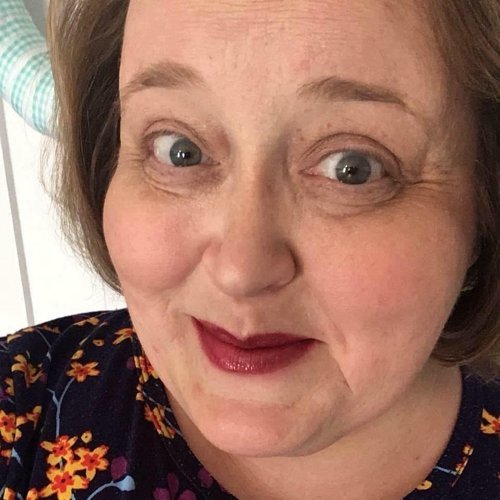James and I first met over a decade ago when we were with the same publisher. Later, when he was teaching high school theater, his students took part in several productions of my play, “Harvey Girls.” In addition to being a gifted writer, James is an all-around good human! He is quietly inspirational and courageous. After our recent chat, I found a new spark to keep working on my own story. Always moving forward with positivity, James will soon have exciting news about fresh avenues for his writing.
Stories have always been at the heart of Texas author James Villanueva’s life—whether through his award-nominated journalism, his historical book about his hometown, or the deeply personal truths now shaping his memoir-in-progress. From publishing a YA novel to contributing to Texas Monthly and speaking at the AJC Decatur Book Festival in Georgia, a national premier literary event, James has explored many creative paths. Yet what makes his voice most compelling is not the accolades, but his honesty about struggle, resilience, and the courage to claim his own story. In this conversation, James talks about the realities of publishing, the freedom of writing with authenticity, and why ordinary stories matter.
Q: James, thank you for talking with me. Let’s start with your publishing journey. Where have your books found a home so far?
A: Most of my earlier work was published through a small press. One of my books came out with Wildlark Books before they went under, and another, Flick, I self-published. I learned quickly that publishing is the Wild West—there’s no magic formula, no way to buy your way in. You do the work, you release it, and then you let it go.
Q: Did the publishing side ever distract you from the writing itself?
A: Actually, I enjoyed that part. Designing the cover, planning the release, even marketing—it was creative and fun. But the industry moves fast. I had moments where it was exciting—book tours, a trip to New York City, even a positive Kirkus Review—but then it fizzled quickly. That’s the reality. At the end of the day, you get back to the work.
Q: You’ve spoken about imposter syndrome. Did you ever feel you weren’t “really” a writer until you were published?
A: Absolutely. I thought I needed publication for validation. But then I realized there’s no such milestone that makes you a “real” writer. What changed everything was stepping back to figure out who I was outside of writing. I got sober, went through therapy, and started to value my own story. Once I stopped running from it, I began writing from an honest, authentic place. That’s when my social media following grew—because people resonated with my truth.
Q: That authenticity takes courage. Was it scary to share personal struggles publicly?
A: Very. I began writing posts about struggling with alcohol and depression, and now I’m working on sharing about surviving sexual abuse. Once I let go of the shame, people responded with: “Me too.” That’s when I realized my strength wasn’t in hiding—it was in living openly.
Q: You’re now working on a memoir. How does it feel different from your fiction?
A: Fiction let me hide. I was making up stories because I didn’t think my real story was good enough. With memoir, I’ve learned my family’s flaws and struggles are part of what makes us beautiful. I’m writing in the tradition of The Glass Castle—finding meaning in the ordinary. My memoir, Little Saints Everywhere, is about embracing that truth.
Q: Outside of writing, you now work in a very different world—inside prisons. How has that shaped your perspective?
A: It’s life-changing. I work with men in recovery from addiction, abuse, and trauma. Hearing their stories reminds me that any of us could end up in places we never expected. I measure success not by changing them, but by showing up as the best version of myself. That authenticity—again—has power.
Q: With such a full life, how do you make time for writing?
A: My day starts at 4:30 a.m. I have an hour commute to think, another hour home, and by the time I reach the keyboard, the words are ready to pour out. Writing doesn’t just happen at the desk—it happens while I’m driving, working out, or even cooking.
Q: What advice would you give to writers who feel their story isn’t worth telling?
A: I used to think the same—who wants to read about a poor Mexican gay kid from West Texas? But I’ve learned that ordinary stories matter. They connect us. Don’t hide your story. Tell it. Someone out there needs it.
James Villanueva is currently working on Little Saints Everywhere, a memoir that blends family history, personal transformation, and the courage to live authentically. His journey reminds us that writing is not about chasing validation, but about honoring the truth of our lives. Contact James if you want to obtain one of his books: authorjvillanueva81@gmail.com.

